第22章 THE AGE OF THE DICTATORS(3)
During the first three years of his control, however, except for the rigorous suppression of unitary movements and the muzzling of the press, few signs appeared of the "black night of Argentine history "which was soon to close down on the land. Realizing that the auspicious moment had not yet arrived for him to exercise the limitless power that he thought needful, he declined an offer of reelection from the provincial legislature, in the hope that, through a policy of conciliation, his successor might fall a prey to the designs of the Unitaries. When this happened, he secretly stirred up the provinces into a renewal of the earlier disturbances, until the evidence became overwhelming that Rosas alone could bring peace and progress out of turmoil and backwardness. Reluctantly the legislature yielded him the power it knew he wanted. This he would not accept until a "popular"vote of some 9000 to 4 confirmed the choice. In 1835, accordingly, he became dictator for the first of four successive terms of five years.
Then ensued, notably in Buenos Aires itself, a state of affairs at once grotesque and frightful. Not content with hunting down and inflicting every possible, outrage upon those suspected of sympathy with the Unitaries, Rosas forbade them to display the light blue and white colors of their party device and directed that red, the sign of Federalism, should be displayed on all occasions. Pink he would not tolerate as being too attenuated a shade and altogether too suggestive of political trimming! A band of his followers, made up of ruffians, and called the Mazorca, or "Ear of Corn," because of the resemblance of their close fellowship to its adhering grains, broke into private houses, destroyed everything light blue within reach, and maltreated the unfortunate occupants at will. No man was safe also who did not give his face a leonine aspect by wearing a mustache and sidewhiskers--emblems, the one of "federalism," and the other of "independence." To possess a visage bare of these hirsute adornments or a countenance too efflorescent in that respect was, under a regime of tonsorial politics, to invite personal disaster! Nothing apparently was too cringing or servile to show how submissive the people were to the mastery of Rosas. Private vengeance and defamation of the innocent did their sinister work unchecked. Even when his arbitrary treatment of foreigners had compelled France for a while to institute a blockade of Buenos Aires, the wily dictator utilized the incident to turn patriotic resentment to his own advantage.
Meanwhile matters in Uruguay had come to such a pass that Rosas saw an opportunity to extend his control in that direction also.
Placed between Brazil and the Argentine Confederation and so often a bone of contention, the little country was hardly free from the rule of the former state when it came near falling under the domination of the latter. Only a few years of relative tranquillity had elapsed when two parties sprang up in Uruguay: the "Reds" (Colorados) and the "Whites" (Blancos). Of these, the one was supposed to represent the liberal and the other the conservative element. In fact, they were the followings of partisan chieftains, whose struggles for the presidency during many years to come retarded the advancement of a country to which nature had been generous.
When Fructuoso Rivera, the President up to 1835, thought of choosing some one to be elected in constitutional fashion as his successor, he unwisely singled out Manuel Oribe, one of the famous "Thirty-three" who had raised the cry of independence a decade before. But instead of a henchman he found a rival. Both of them straightway adopted the colors and bid for the support of one of the local factions; and both appealed to the factions of the Argentine Confederation for aid, Rivera to the Unitaries and Oribe to the Federalists. In 1843, Oribe, at the head of an army of Blancos and Federalists and with the moral support of Rosas, laid siege to Montevideo. Defended by Colorados, Unitaries, and numerous foreigners, including Giuseppe Garibaldi, the town held out valiantly for eight years--a feat that earned for it the title of the "New Troy." Anxious to stop the slaughter and destruction that were injuring their nationals, France, Great Britain, and Brazil offered their mediation; but Rosas would have none of it. What the antagonists did he cared little, so long as they enfeebled the country and increased his chances of dominating it. At length, in 1845, the two European powers established a blockade of Argentine ports, which was not lifted until the dictator grudgingly agreed to withdraw his troops from the neighboring republic.
More than any other single factor, this intervention of France and Great Britain administered a blow to Rosas from which he could not recover. The operations of their fleets and the resistance of Montevideo had lowered the prestige of the dictator and had raised the hopes of the Unitaries that a last desperate effort might shake off his hated control. In May, 1851, Justo Jose de Urquiza, one of his most trusted lieutenants, declared the independence of his own province and called upon the others to rise against the tyrant. Enlisting the support of Brazil, Uruguay, and Paraguay, he assembled a "great army of liberation,"composed of about twenty-five thousand men, at whose head he marched to meet the redoubtable Rosas. On February 3,1852, at a spot near Buenos Aires, the man of might who, like his contemporary Francia in Paraguay, had held the Argentine Confederation in thralldom for so many years, went down to final defeat. Embarking on a British warship he sailed for England, there to become a quiet country gentleman in a land where gauchos and dictators were unhonored.